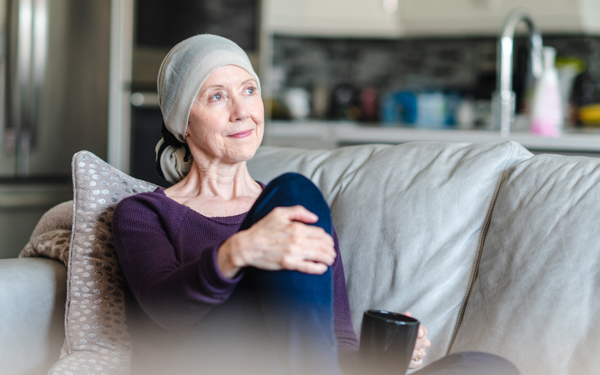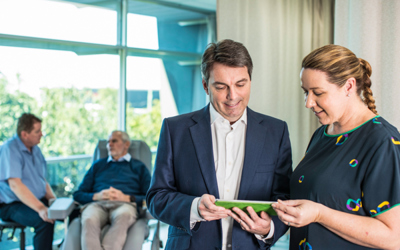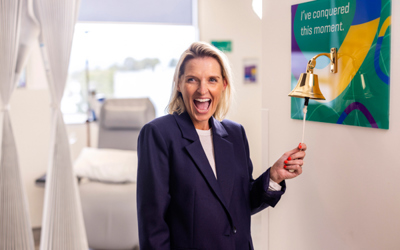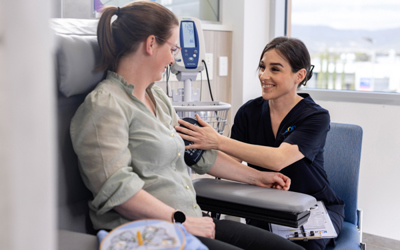Receiving a cancer of unknown primary diagnosis
Being told you have cancer can be a very confronting time, regardless of the type of cancer diagnosis you receive.
You may expect to receive a common cancer diagnosis such as breast or prostate cancer. But what happens when you are told your cancer is of unknown primary?
Cancer of unknown primary (CUP) occurs when cancer has spread from an unknown starting point.
For the 2,353 Australians who are estimated to receive a cancer of unknown primary diagnosis in 2021, their cancer diagnosis comes with a mystery – where did their cancer originate from before spreading throughout the body?
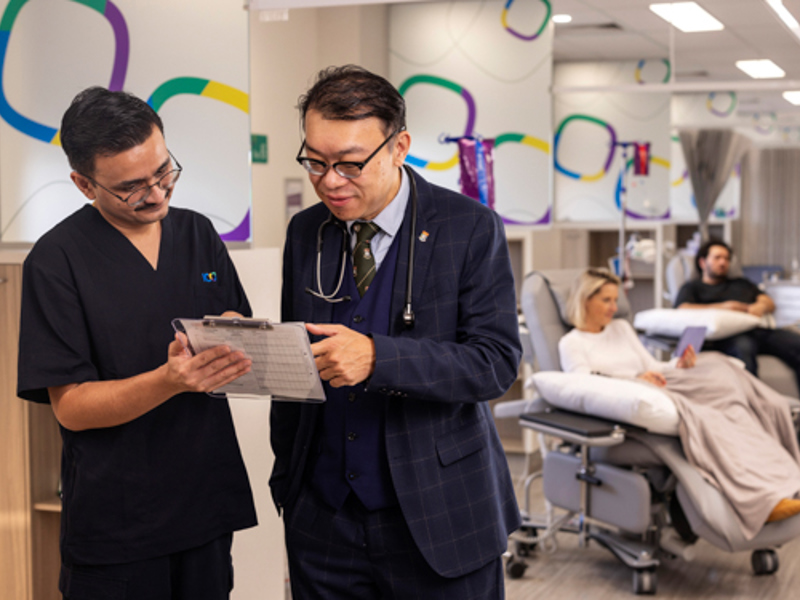
Understanding cancer of unknown primary
For many people, cancer begins its growth in a primary location such as the breast and prostate. This cancer can then break away and spread to one or more secondary locations throughout the body, forming new tumours from its original source’s cells.
For instance, if you have breast cancer that spreads to the liver, the cancerous cells are breast cells and not liver cells. This means that the cancer is still breast cancer and not liver cancer.
However, when health professionals are examining secondary cancer locations, it is not always clear where the cancer may have emerged from. This is known as cancer of unknown primary (CUP).
There are many reasons why health professionals may not be able find your primary cancer or detect your cancer’s cell type. For instance, the primary cancer could have been destroyed by your immune system or may be too small to locate in tests. The cancer cells may also look abnormal, without the specialised characteristics that differentiate them from other cancerous cells (such as poorly differentiated carcinoma which starts in the tissue and skin cells of organs).
In all cases, the cancer’s spread beyond its primary location makes cancer of unknown primary (CUP) an advanced cancer diagnosis. It’s normal to feel a wide range of emotions when you are told your cancer is at an advanced stage. It’s important to remember that there are treatment options available to control any symptoms you may be experiencing and increase your overall quality and length of life.
How is cancer of unknown primary diagnosed?
When diagnosing cancer of unknown primary (CUP), the ultimate goal is to determine the primary location of the secondary cancer. This can be achieved through using the secondary locations and a series of ‘clues’. For instance, some cancers are known to commonly spread to specific areas in the body.
If the primary origin is found, the cancer is no longer considered to be cancer of unknown primary (CUP).
Tests may involve:
A physical examination
Blood tests
Imaging tests (such as x-rays, ultrasounds, CT scan or PET scan)
Endoscopy exams
Sampling tissue of cells from impacted areas through a biopsy or fine needle aspiration
Examining the genetic makeup of the cancer in the tissue biopsy
Signs and symptoms of cancer of unknown primary
The signs and symptoms of cancer of unknown primary (CUP) can be confusing as they are often shared with other cancers. Symptoms also differ from person to person, depending on a series of factors such as the cancer’s secondary locations, with some people experiencing no symptoms at all.
Common signs and symptoms include:
Swelling in areas such as the abdomen and lymph glands
Unexplained weight-loss
Feeling fatigued and tired
Pain in the back, bones and chest
A loss of appetite/ feeling sick
Common treatments for cancer of unknown primary
As an advanced cancer, cancer of unknown primary (CUP) may not be curable. With improvements in genomic profiling of the cancerous tissue, for many cases of cancer of unknown primary (CUP) doctors can now determine the most likely primary site where the cancer originated from. For those patients, treatment will be directed towards that kind of cancer. Even if this is not possible for your cancer, treatment can help to you to live longer and manage your cancer and symptoms.
Your treatment will depend on factors such as the location of the cancer and how many areas it has spread to. Types of cancers also react differently and several treatments may be needed. Your doctor will guide you through these options and how they will impact you. Common treatments include chemotherapy, radiation therapy, hormone therapy, targeted therapy, immunotherapy and surgery.
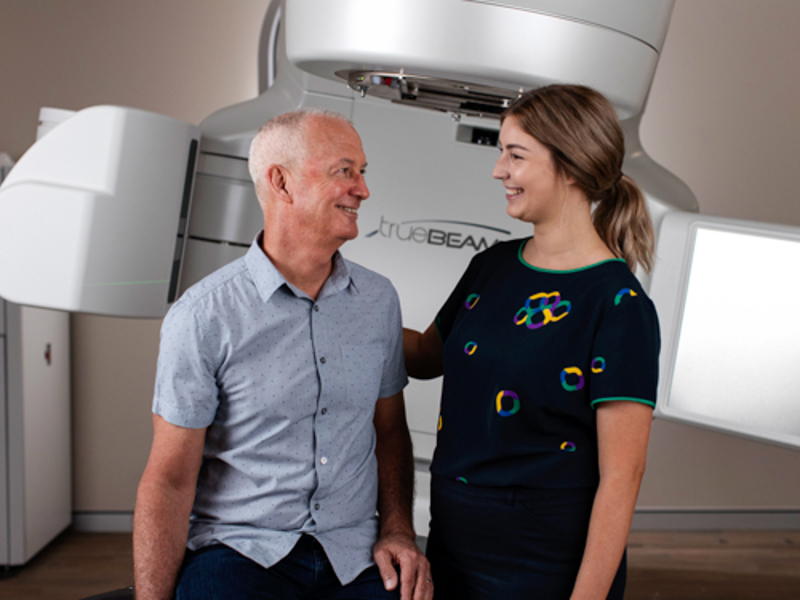
It’s important to remember that research and clinical trials are continuously improving outcomes for patients through the development of new and emerging treatments, supporting patients diagnosed with rare and uncommon cancers or those patients who are no longer appropriate for standard or approved therapies to access treatment.
Clinical trials for cancer of unknown primary
Icon delivers Australia’s largest private cancer clinical trials and research program participating in international and national trials across medical oncology, haematology and radiation oncology. If you would like more information on participating in a clinical trial for cancer of unknown primary, please speak with your doctor.
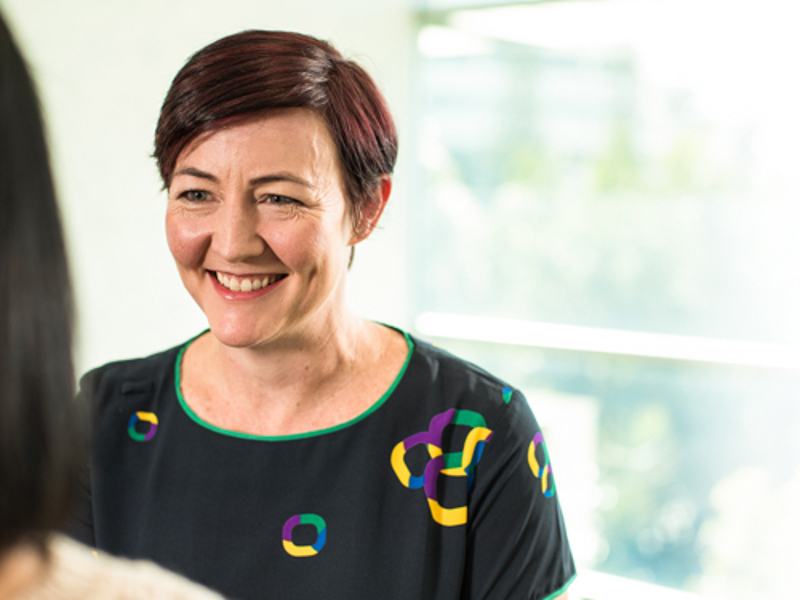
Finding support following a cancer of unknown primary diagnosis
If you’re living with a cancer of unknown primary (CUP) diagnosis, know that there is support available for you throughout every step of your cancer journey. With palliative care, you can live a full and comfortable life with a life-limiting cancer. At Icon, we are here to support you in accessing compassionate support services that focus on your physical, emotional and social wellbeing. We encourage you to speak with your care team to find out more.
Helpful resources
References
The content on the Icon Cancer Centre website is for informational purposes only and should not be considered medical advice. It is not a substitute for consultation with a qualified medical practitioner. For personalised medical guidance, please consult with your GP or another qualified healthcare provider.


